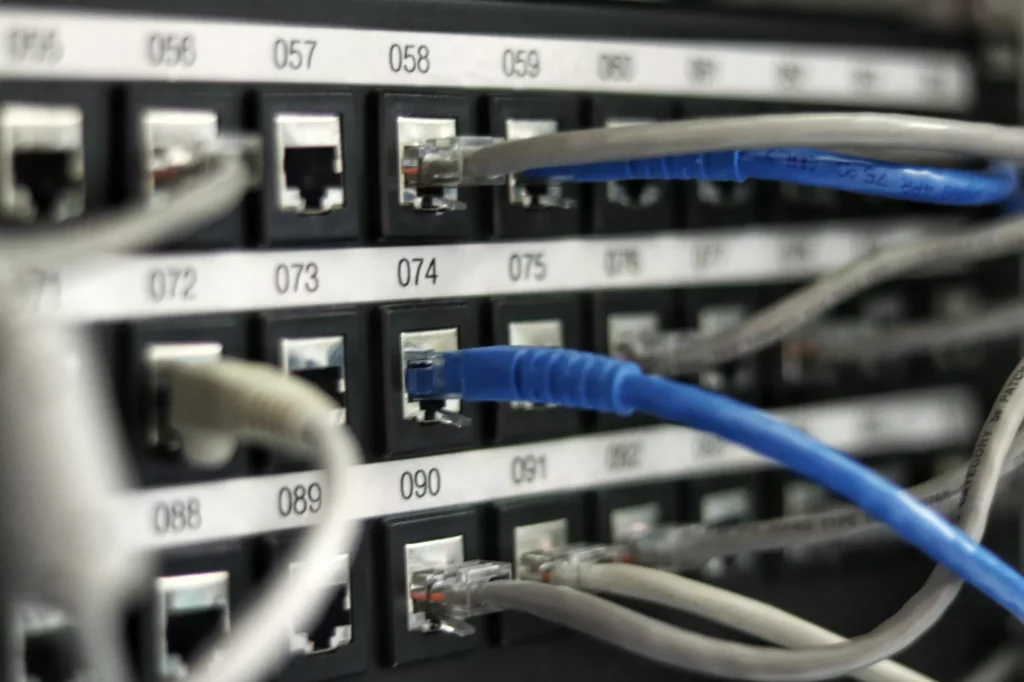Omfattande felsökningsguide för IPTV: Fixa vanliga IPTV-problem
Om du upplever problem med IPTV tjänster såsom buffring, frysning eller anslutningsfel, detta Felsökning guide hjälper dig att åtgärda dessa vanliga IPTV-frågor. Följ dessa steg för att förbättra din upplevelse av IPTV-streaming och lösa eventuella problem snabbt.

1. Kontrollera din internetanslutning för IPTV-streaming För att IPTV ska fungera utan problem behöver du en stabil och snabb internetanslutning. En långsam eller instabil anslutning kan orsaka buffring och frysning problem.
Gör ett hastighetstest för internet (rekommenderad hastighet: minst 10 Mbps för HD-streaming och 25 Mbps för 4K-streaming).
Om du använder Wi-Fi kan du prova att byta till en Ethernet-anslutning (trådbunden) för att få en stabilare IPTV-upplevelse.
Starta om routern och modemet för att uppdatera anslutningen.
2. Uppdatera programvaran för din IPTV-app eller enhet
Föråldrad programvara kan orsaka kompatibilitetsproblem och störningar i IPTV-streaming.
Se till att din IPTV-app (t.ex. IPTV Smarters, TiviMate, Perfect Player) är uppdaterad till den senaste versionen.
Uppdatera den fasta programvaran för din streamingenhet (t.ex. Amazon Fire Stick, Android TV Box, Roku, NVIDIA Shield).
3. Verifiera IPTV-serverns status
IPTV-servrar kan gå ner tillfälligt på grund av underhåll eller tekniska problem. Om du inte kan ansluta eller om kanalerna inte laddas kan det bero på ett problem på serversidan.
Kontakta oss IPTV-leverantör för att kontrollera om servern är online.
Om IPTV-servern är nere kan du behöva vänta på att den ska återställas.
4. Rensa cache och data i din IPTV-app
Att rensa cacheminnet kan lösa många vanliga problem, bland annat frysning ochbuffring.
På Android-enheter: Gå till Inställningar > Appar > [Din IPTV-app] > Lagring > Rensa cache.
Detta steg kan lösa apprelaterade problem och förbättra prestandan.
5. Kontrollera URL för spellista och abonnemangsuppgifter
Se till att din URL för M3U-spellista eller prenumerationsuppgifter är korrekta.
Dubbelkolla URL till spellistan som tillhandahålls av din IPTV-tjänst.
Kontrollera att din IPTV-prenumeration är aktiv och inte har löpt ut.
6. Åtgärda problem med buffring av IPTV
Buffring är ett vanligt problem i IPTV-streaming, som ofta orsakas av nätverks- eller serverproblem.
Sänk streamingupplösningen för att minska buffring (t.ex. från 4K till 1080p eller 720p).
Använd en VPN för IPTV för att kringgå ISP-strypning och förbättra streamingkvaliteten.
7. Starta om din enhet
Ibland kan en enkel omstart av enheten lösa problemet.Problem med PTV-uppspelning.
Starta om din streamingenhet, smart-TV eller Android-box.
8. Ändra DNS-inställningar för bättre prestanda
Om du ändrar DNS-inställningarna kan du lösa problem med IPTV-anslutningen och minska buffringen.
Ställ in DNS till Googles DNS (8.8.8.8 och 8.8.4.4) för potentiellt snabbare och mer tillförlitlig streaming.
9. Använd en pålitlig VPN för IPTV-streaming
I vissa fall kan din Internetleverantör (ISP) strypa IPTV-trafiken, vilket orsakar buffring eller anslutningsproblem.
Använda en VPN för IPTV kan hjälpa till att kringgå strypning och förbättra din streamingupplevelse.
10. Kontakta din IPTV-leverantör för stöd
Om inget av stegen ovan löser problemet kontaktar du din IPTV-leverantör för ytterligare hjälp. De kan erbjuda ytterligare felsökning eller serveruppdateringar.


